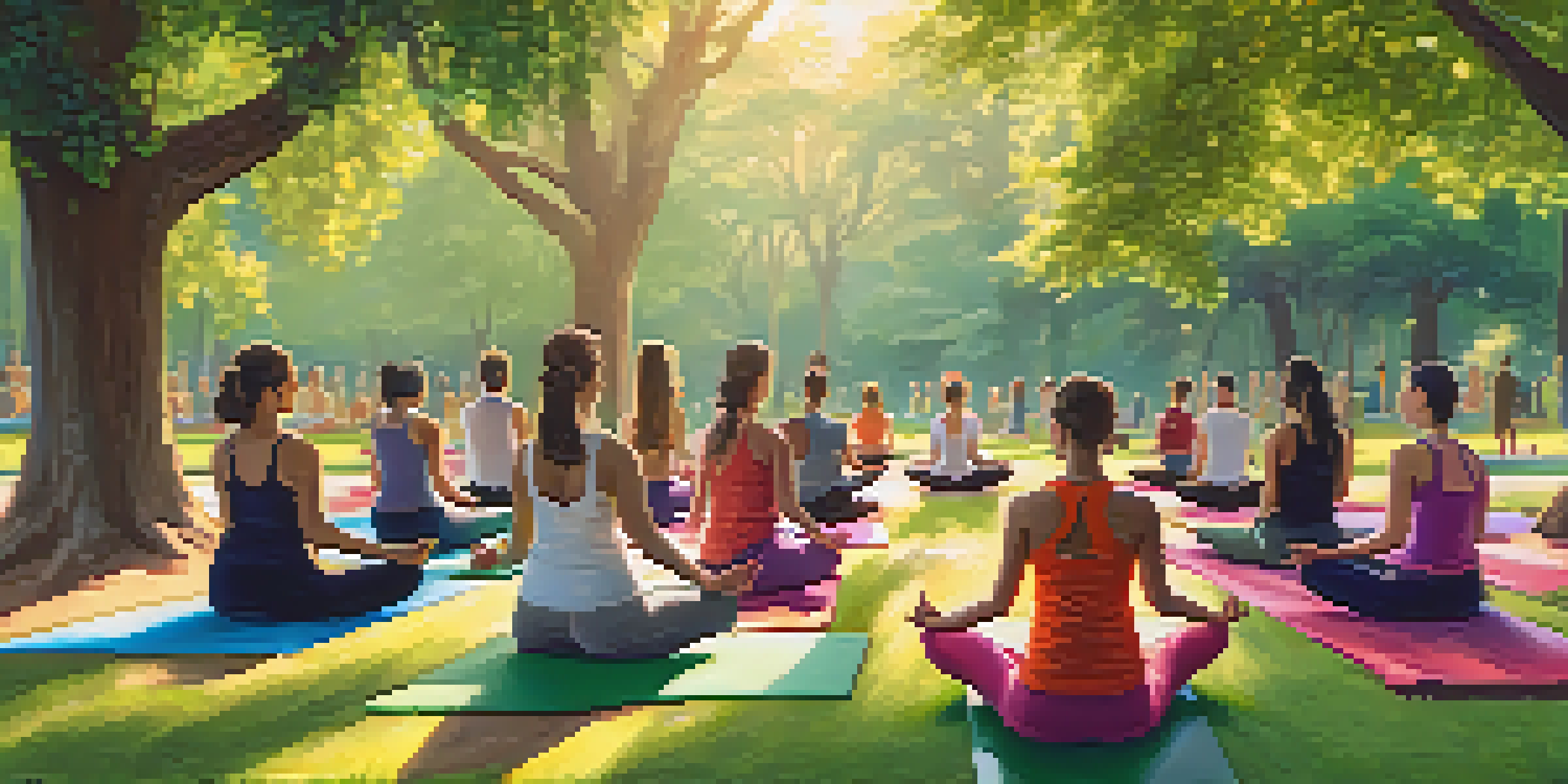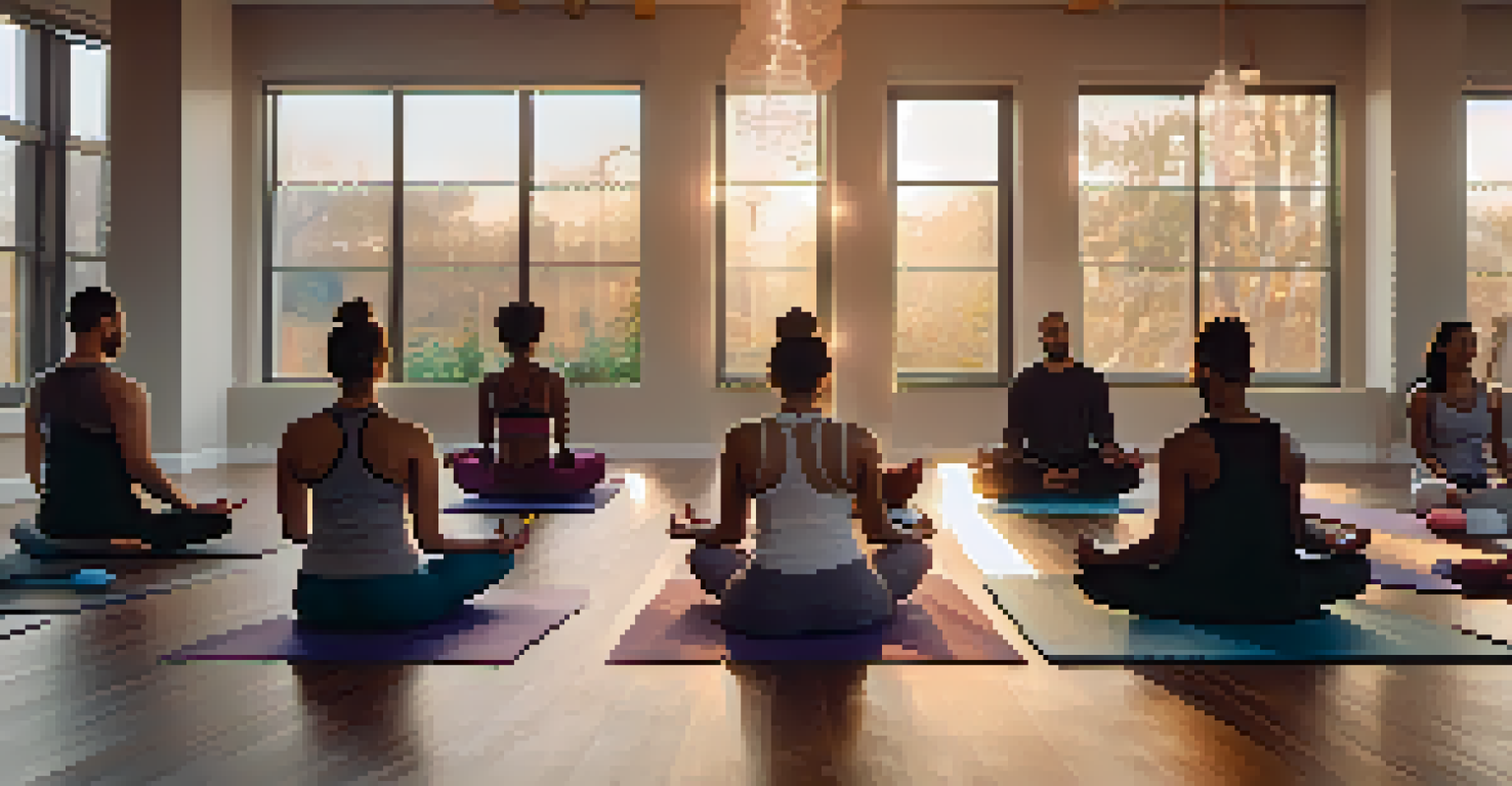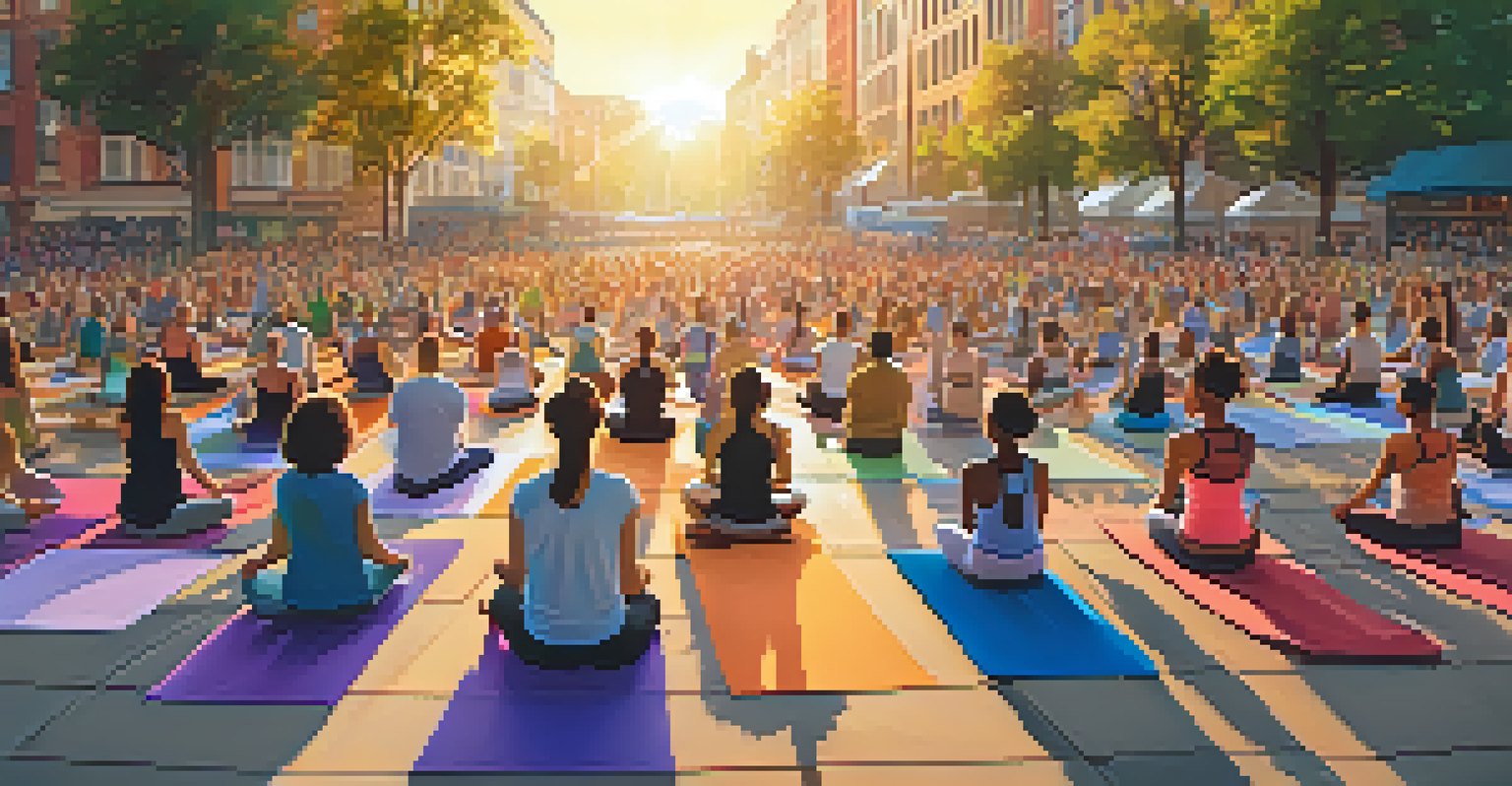Activism and Yoga: A Path to Personal Empowerment

Understanding the Connection Between Yoga and Activism
Yoga is often seen as a personal practice focused on self-care and mindfulness. However, its roots are deeply intertwined with activism, promoting social justice and community engagement. Just as yoga encourages self-awareness, it also fosters awareness of the world around us, inspiring individuals to take action.
Yoga is the journey of the self, through the self, to the self.
When we practice yoga, we cultivate a sense of inner peace and clarity. This mental space allows us to reflect on societal issues and motivates us to make positive changes. By merging these two paths, we can channel our energy towards activism that resonates with our values.
Many yogis believe that personal empowerment leads to collective impact. As we grow stronger and more centered in our practice, we become more equipped to advocate for causes we care about, making activism a natural extension of our yoga journey.
The Role of Mindfulness in Activism
Mindfulness, a core principle of yoga, plays a crucial role in effective activism. By being present and aware, we can better understand the complexities of social issues and our emotional responses to them. This awareness helps us engage thoughtfully rather than react impulsively.

Practicing mindfulness can help activists maintain their motivation and resilience. In a world often filled with overwhelming challenges, it’s easy to feel discouraged. Mindfulness encourages us to take breaks, recharge, and return to our efforts with renewed energy and perspective.
Yoga Fosters Activism and Awareness
Yoga not only enhances self-awareness but also inspires practitioners to engage in social justice and community initiatives.
Moreover, mindfulness can improve our communication skills. When we actively listen and approach discussions with empathy, we foster a more inclusive dialogue, which is essential for successful collaboration in activist movements.
Building a Community Through Yoga and Activism
Yoga is inherently a communal practice, often bringing people together in studios or classes. This sense of community can be a powerful catalyst for collective action. When individuals unite under shared beliefs and goals, they amplify their voices and impact.
Act as if what you do makes a difference. It does.
Participating in group yoga sessions focused on social justice can deepen our connections with like-minded individuals. These gatherings provide a safe space to share experiences, ideas, and strategies for activism, fostering a supportive network.
As we engage with our community, we not only strengthen our activism but also inspire others to join the cause. By embodying our values through yoga, we create a ripple effect of empowerment that can reach far beyond our immediate circles.
Activism as a Form of Self-Care
For many, activism can be emotionally draining, leading to burnout. However, incorporating yoga into our activism can provide a much-needed balance. The physical and mental benefits of yoga can help activists maintain their well-being while pursuing their passions.
Engaging in self-care practices like yoga allows us to recharge and reflect on our motivations for activism. This reflection can clarify our goals and ensure that we remain aligned with our core values, making our efforts more effective.
Mindfulness Supports Activist Efforts
Practicing mindfulness helps activists navigate challenges thoughtfully, maintain motivation, and communicate effectively.
Additionally, self-care doesn’t just benefit the individual; it enhances the collective effort. When activists prioritize their well-being, they are more likely to sustain their involvement and contribute positively to their communities.
Yoga Techniques to Enhance Activist Mindset
Certain yoga techniques can specifically enhance our activist mindset. For example, breathwork, or pranayama, can help calm anxiety and center our thoughts, making it easier to tackle complex issues. This technique fosters clarity and focus, both vital in activism.
Meditation is another powerful tool for activists. By dedicating time to quiet the mind, we can cultivate deeper insights into our passions and the societal challenges we face. This practice can also help us develop the patience and resilience needed for long-term activism.
Integrating these techniques into our daily routine can help ensure that our activism is grounded in purpose and intention. When we approach challenges with a clear mind and open heart, we’re more equipped to create meaningful change.
Finding Your Voice through Yoga and Activism
Yoga encourages us to connect with our authentic selves, which is essential when finding our voice as activists. As we deepen our practice, we often uncover passions and beliefs that drive us to speak out and take action. This inner exploration fosters confidence in expressing our views.
Using yoga as a platform for activism can also provide a unique way to share our messages. Workshops, classes, or community events can serve as forums for discussing important issues while promoting self-expression through movement and dialogue.
Community Amplifies Activist Impact
Group yoga sessions focused on social justice create a supportive network that encourages collaboration and collective action.
Ultimately, finding our voice is about embracing our truths. When we align our yoga practice with our activism, we empower ourselves and inspire others to do the same, creating a community of advocates ready to effect change.
Taking Action: Practical Steps for Activist Yogis
For those looking to merge their yoga practice with activism, there are many practical steps to take. Start by identifying causes that resonate with you and explore how you can contribute, whether through volunteering, education, or fundraising. Every small action counts.
Consider organizing or participating in yoga events that support social justice causes. Many studios offer donation-based classes where proceeds go to various organizations, allowing you to combine your practice with meaningful contributions.

Finally, stay informed and engaged with the issues you care about. Reading books, attending workshops, and connecting with other activists can help you deepen your understanding and refine your approach, creating a stronger impact in your activism.